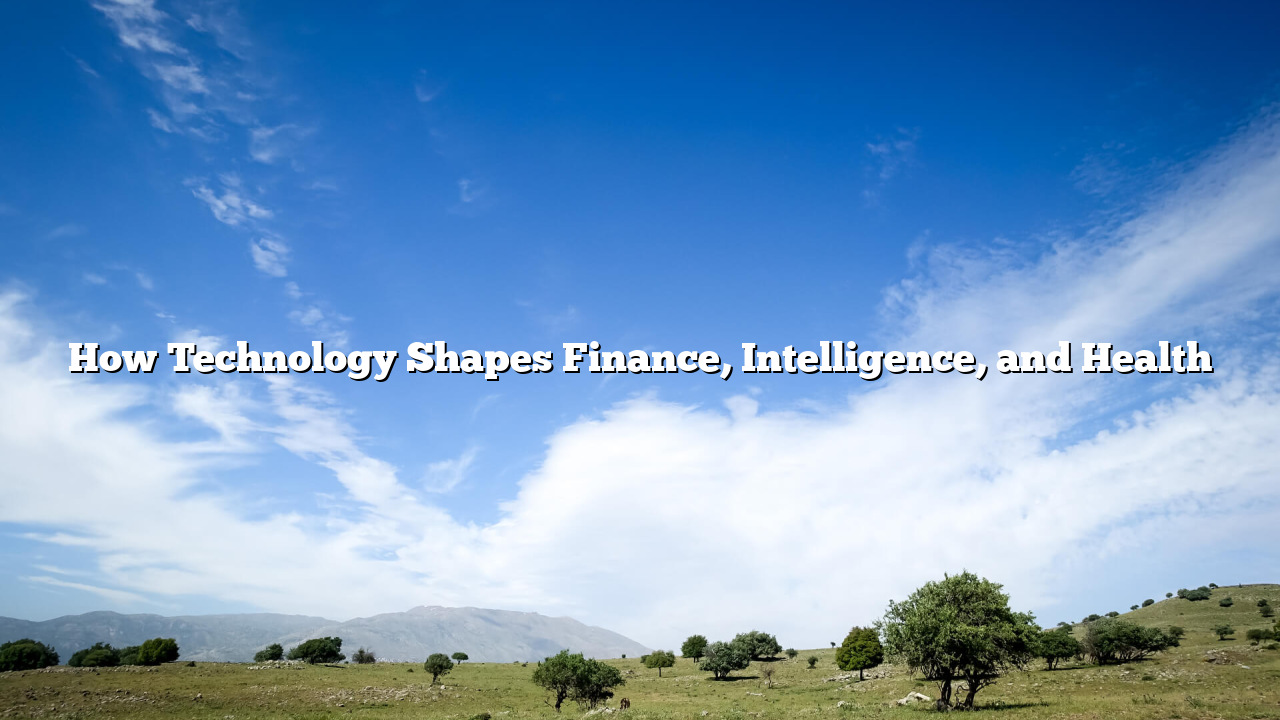In today’s rapidly advancing world, the integration of technology in various sectors has become more significant than ever before. From financial services to health care and AI, technological advancements are transforming the way we live and work. In this article, we will explore the intersection of technology with finance, intelligence, and health, and how each of these areas evolving in the modern world.
Finance and Technology: A Revolutionary Shift
The finance industry has undergone a radical transformation thanks to the advent of technology. In gacor96 , financial technology has changed the way businesses and individuals manage their money, making banking services more accessible, efficient, and secure.
Blockchain, for example, has emerged as a powerful tool for securing transactions, and its potential extends far beyond cryptocurrencies like Bitcoin. With its ability to create secure, tamper-proof digital records, blockchain is being explored for use in financial contracts, digital currencies, and fraud prevention.
AI is transforming the financial industry by enabling more efficient and personalized services. For example, machine learning models are now used to make investment decisions, track market trends, and even provide personalized financial advice, democratizing wealth management for individuals from all backgrounds.
Artificial Intelligence: A New Era of Intelligence
Artificial Intelligence (AI) has emerged as one of the most transformative technologies in recent years. Its ability to process large amounts of data and make decisions based on patterns has revolutionized industries such as healthcare, finance, and transportation. AI is not only changing how we interact with technology, but also how we understand human intelligence.
In healthcare, AI is playing a critical role in improving patient outcomes. By analyzing vast amounts of medical data, AI can assist healthcare providers in diagnosing diseases more accurately, recommending treatments, and predicting patient responses. AI’s role in personalized medicine is becoming increasingly important, as it helps tailor treatments to individual genetic profiles.
Moreover, AI is helping to close the divide between human intelligence and machine learning. In fields such as neuroscience, AI is being used to model and understand the complexities of the human brain, bringing us closer to creating machines that can think and reason in ways that mimic human cognition.
How Technology is Revolutionizing Healthcare
The healthcare sector has also experienced a dramatic transformation due to technological advancements. From telemedicine to personalized health tracking devices, technology has made healthcare more efficient and accessible than ever before.
Telemedicine, for example, has become an essential tool, especially in rural areas or regions with limited access to healthcare facilities. Through virtual consultations, patients can receive medical advice and prescriptions without the need for an in-person visit. This not only improves access to healthcare but also reduces the strain on overburdened healthcare systems.
In addition, wearable health devices such as fitness trackers and smartwatches are helping individuals take control of their health by providing real-time data on their physical activity, heart rate, sleep patterns, and more. These devices are also contributing to the early detection of health issues, as they can track changes in health metrics and alert users or doctors to potential concerns.
Artificial intelligence is revolutionizing the way healthcare is delivered. AI is being used to analyze vast amounts of patient data, from medical imaging to electronic health records (EHRs), to provide faster and more accurate diagnoses. AI-powered systems are helping healthcare providers identify health risks and offer personalized treatments based on a patient’s unique genetic and medical history.
Conclusion
In summary, technology is at the forefront of transforming finance, intelligence, and healthcare. These sectors are experiencing rapid changes that bring new possibilities and challenges. As we look to the future, staying informed and adapting to these technological advancements will be key to leveraging their potential for personal and societal growth.
